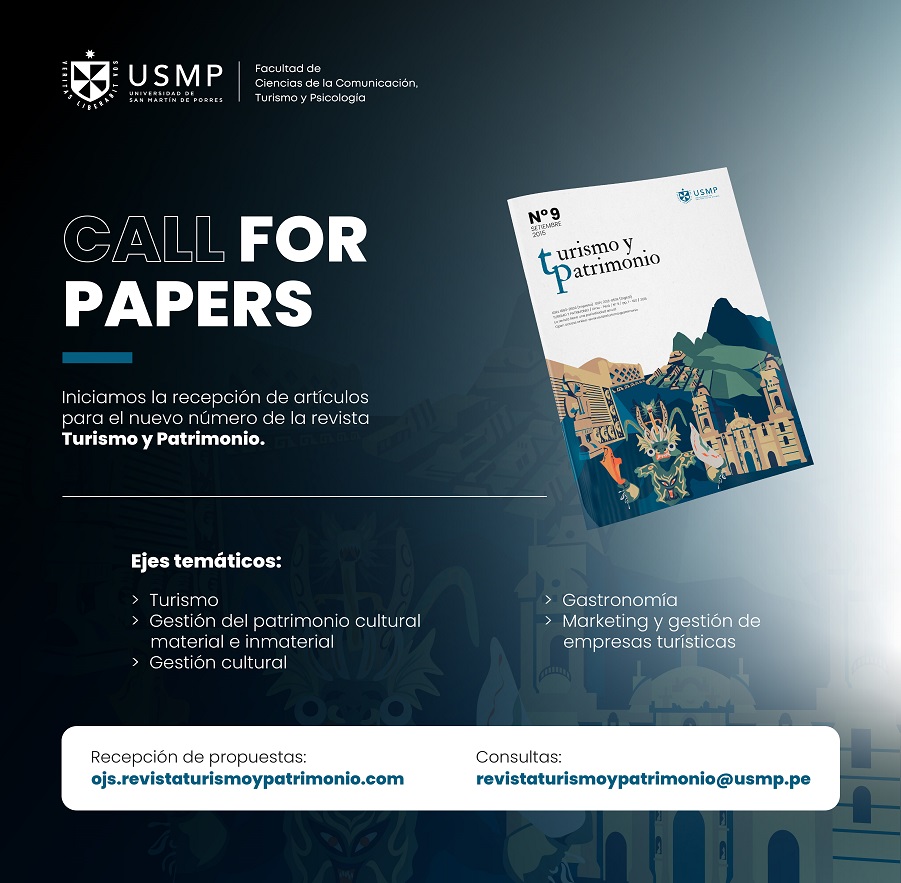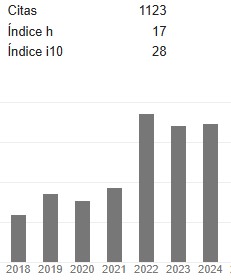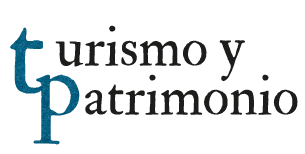Análisis del papel de los operadores turísticos en el ecoturismo desde la economía austriaca
Resumen
This article examines the role of tour operators (TOs) in ecotourism destinations through the lens of Austrian environmental economics. In contrast to the neoclassical approach, which considers environmental issues as market failures requiring government intervention, the Austrian perspective views them as coordination failures caused by dispersed knowledge, subjective valuations, and inadequate institutional frameworks. Using a theoretical-analytical method based on praxeology, the study suggests that TOs act as entrepreneurial coordinators who detect shifts in tourists’ environmental preferences and adapt their services accordingly, influencing other actors in the supply chain. The analysis includes heuristic illustrations of firms such as TUI, Intrepid Travel, and Naturetrek, which promote sustainability through decentralised initiatives without relying on external regulation. These cases demonstrate how entrepreneurial action can improve environmental quality by responding to market signals. The study concludes that TOs should not be seen merely as intermediaries, but as institutional entrepreneurs with a key role in environmental governance. Instead of imposing uniform regulations, public policies should enable flexible institutional arrangements that reinforce property rights and encourage entrepreneurial adaptation. This approach provides a more dynamic and context-sensitive understanding of sustainability in tourism.
Descargas
Citas
Aburumman, A. H. (2020). The concept of global governance in tourism franchises: A case study of TUI group. Entrepreneurship and Sustainability Issues, 8(2), 1321-1339. https://doi.org/10.9770/jesi.2020.8.2(78)
Agarwal, R., Mehrotra, A., Mishra, A., Rana, N. P., Nunkoo, R., & Cho, M. (2024). Four decades of sustainable tourism research: Trends and future research directions. International Journal of Tourism Research, 26(2), e2643. https://doi.org/10.1002/jtr.2643
Alvarez, S. A., & Busenitz, L. W. (2001). The entrepreneurship of resource-based theory. Journal of Management, 27(6), 755-775. https://doi.org/10.1177/014920630102700609
Arya, V., Auruskeviciene, V., Agarwal, S., Kokatnur, P., Kumar, H., & Verma, R. (2024). Let us take a walk to the sustainable tourism practices: A qualitative study through the lens of tourism experts. Environmental Science and Pollution Research, 31, 12892-12915. https://doi.org/10.1007/s11356-023-31503-7
Baena, V., & Cerviño, J. (2024). Tourism in the era of social responsibility and sustainability: Understanding international tourists’ destination choices. Sustainability, 16(19), 8509. https://doi.org/10.3390/su16198509
Bastakis, C., Buhalis, D., & Butler, R. (2004). The perception of small and medium-sized tourism accommodation providers on the impacts of the tour operators’ power in the Eastern Mediterranean. Tourism Management, 25(2), 151-170. https://doi.org/10.1016/s0261-5177(03)00098-0
Blanco, E., Rey-Maquieira, J., & Lozano, J. (2009). Economic incentives for tourism firms to undertake voluntary environmental management. Tourism Management, 30(1), 112-122. https://doi.org/10.1016/j.tourman.2008.04.007
Block, W. (2014). Comment on Dolan on Austrian economics and environmentalism. Quarterly Journal of Austrian Economics, 17(2), 224-248. https://cdn.mises.org/qjae17_2_6.pdf
Briassoulis, H. (2002). Sustainable tourism and the question of the commons. Annals of tourism research, 29(4), 1065-1085. https://doi.org/10.1016/s0160-7383(02)00021-x
Boettke, P. J., & Coyne, C. J. (2023). New thinking in Austrian economics. Annual Review of Economics, 15, 329-347. https://doi.org/10.1146/annurev-economics-082322-021346
Budeanu, A. (2005). Impacts and responsibilities for sustainable tourism: a tour operator’s perspective. Journal of Cleaner Production, 13(2), 89-97. https://doi.org/10.1016/j.jclepro.2003.12.024
Buhalis, D., & Crotts, J. (2000). Relationships in the distribution channel of tourism: Conflicts between hoteliers and tour operators in the Mediterranean region. In J. Crotts, D. Buhalis and R. March (eds.), Global alliances in tourism and hospitality management, (pp. 113-139). Haworth Press. https://doi.org/10.4324/9780203824900-11
Calveras, A. (2003). Incentives of international and local hotel chains to invest in environmental quality. Tourism economics, 9(3), 297-306. https://doi.org/10.1177/135481660300900304
Camrova, L. (2007). Re-thinking green: Alternatives to environmental bureaucracy. Edited by Robert Higgs and Carl P. Close. Oakland, Calif. The Independent Institute. The Quarterly Journal of Austrian Economics, 10(1), 93-100. https://doi.org/10.1007/s12113-007-9000-8
Carden, A. (2009). Economic calculation in the environmentalist commonwealth. https://doi.org/10.2139/ssrn.1392412
Carden, A. (2014). What Should Austrian Economists Do? On Doan on the Austrian Paradigm in Environmental Economics. Quarterly Journal of Austrian Economics, 17(2), 218-223.
Carey, S., Gountas, Y., & Gilbert, D. (1997). Tour operators and destination sustainability. Tourism Management, 18(7), 425-431. https://doi.org/10.1016/s0261-5177(97)00044-7
Chamlee-Wright, E., & Myers, J. A. (2008). Discovery and social learning in non-priced environments: An Austrian view of social network theory. The Review of Austrian Economics, 21, 151-166. https://doi.org/10.1007/s11138-007-0039-8
Chen, W.-Y., & Hsu, C.-Y. (2012). Assessing travel business partners using the critical incident technique and the analytic hierarchy process. Tourism Economics, 18(2), 295-310. https://doi.org/10.5367/te.2012.0114
Cordato, R. (1992a). Welfare economics and externalities in an open-ended universe. Springer Science and Business Media, LLC. https://doi.org/10.1007/978-1-4757-2145-4
Cordato, R. (1992b). Knowledge problems and the problem of social cost. Journal of the History of Economic Thought, 14(2), 209-224.
Cordato, R. (2004). Toward an Austrian theory of environmental economics. Quarterly Journal of Austrian Economics, 7(1), 3-16. https://doi.org/10.1007/s12113-004-1031-9
Coyne, C. J., Sobel, R. S., & Dove, J. A. (2010). The nonproductive entrepreneurial process. The Review of Austrian Economics, 23, 333-346. https://doi.org/10.1007/s11138-010-0124-2
Curtin, S., & Busby, G. (1999). Sustainable destination development: the tour operator perspective. International Journal of Tourism Research, 1(2), 135-147. https://doi.org/10.1002/(sici)1522-1970(199903/04)1:2%3C135::aid-jtr151%3E3.0.co;2-y
Dolan, E. G. (2014). The Austrian paradigm in environmental economics: Theory and practice. Quarterly Journal of Austrian Economics, 17(2).
Dumazel, R., & Humphreys, I. (1999). Travel agent monitoring and management. Journal of Air Transport Management, 5(2), 63-72. https://doi.org/10.1016/s0969-6997(98)00039-8
Foss, N. J., & Klein, P. G. (2006). The emergence of the modern theory of the firm. MG Working Paper (1). https://doi.org/10.2139/ssrn.982094
García-Maroto, I., Higueras-Castillo, E., Muñoz-Leiva, F., & Liébana-Cabanillas, F. (2024). Determinants of the intention to recommend a socially responsible destination with smart tourism technologies. Current Issues in Tourism, 28(13), 2136-2152 https://doi.org/10.1080/13683500.2024.2355565
Gartner, W. C., & Bachri, T. (1994). Tour operator’s role in the tourism distribution system: An Indonesian case study. In E. Kaynak & M. Uysal, Global Tourist Behavior. Routledge. https://doi.org/10.4324/9780203058107-13
George, R. (2025). Socially responsible marketing. In Marketing Tourism and Hospitality: Concepts and Cases (pp. 451-480). Springer Nature Switzerland.
Gunning, J. P. (2000). Roy Cordato’s «Austrian» critique of coase on social cost. The Review of Austrian Economics, 13(2), 175-192. https://doi.org/10.1023/A:1007860602774
Guo, X., & He, L. (2012). Tourism supply-chain coordination: The cooperation between tourism hotel and tour operator. Tourism Economics, 18(6), 1361-1376. https://doi.org/10.5367/te.2012.0179
Hayek, F. A. (1945). The Use of Knowledge in Society. The American Economic Review, 35(4), 519-530.
Hülsmann, J. (1997). Knowledge, judgment, and the use of property. Review of Austrian Economics, 10, 23-48.https://doi.org/10.1007/bf02538142
Ikeda, S. (2004). Urban interventionism and local knowledge. The review of Austrian economics, 17(2-3), 247-264. https://doi.org/10.1023/b:raec.0000026834.40849.d5
Jacob, M., Florido, C., & Aguiló, E. (2010). Environmental innovation as a competitiveness factor in the Balearic Islands. Tourism Economics, 16(3), 755-764. https://doi.org/10.5367/000000010792278365
Kirzner, I. (1988). Welfare economics: A modern Austrian perspective. In W. Block & Ll. H. Rockwell, Jr., (ed.), Man, economy, and liberty: Essays in honour of Murray N. Rothbard (pp. 77-88). Ludwig von Mises Institute.
Klein, P. G. (2008). The mundane economics of the Austrian school. The Quarterly Journal of Austrian Economics, 11, 165-187. https://doi.org/10.1007/s12113-008-9045-3
Klein, D. B., & Briggeman, J. (2010). Israel Kirzner on Coordination and Discovery. Journal of Private Enterprise, 25(2), 1-53.
Klein, D., & Orsborn, A. (2009). Concatenate coordination and mutual coordination. Journal of Economic Behavior & Organization, 72(1), 176-187. https://econfaculty.gmu.edu/klein/PdfPapers/Coords_JEBO2009.pdf
Klemm, M. S., & Martin-Quiros, M. A. (1996). Changing the balance of power: Tour operators and tourism suppliers in the Spanish tourism industry. In L. Harrison & W. Husbands (eds.), Practicing responsible tourism: international case studies in tourism, planning, policy and development, (pp. 126-143). Wiley. https://opac.cus.ac.in/cgi-bin/koha/opacdetail.pl?biblionumber=3488
Kogut, B., & Zander, U. (1996). What firms do? Coordination, identity, and learning. Organization Science, 7(5), 502-518. https://doi.org/10.1287/orsc.7.5.502
Kontogeorgopoulos, N. (2004). Conventional tourism and ecotourism in Phuket, Thailand: Conflicting paradigms or symbiotic partners? Journal of Ecotourism, 3(2), 87-108. https://doi.org/10.1080/14724040408668152
Lewin, P. (2015). Entrepreneurial opportunity as the potential to create value. The Review of Austrian Economics, 28(1), 1-15. https://doi.org/10.2139/ssrn.2271155
Lozano, J., Arbulú, I., & Rey-Maquieira, J. (2016). The greening role of tour operators. Environmental management, (57), 49-61. https://doi.org/10.1007/s00267-015-0587-9
Lozano, J., Gómez, C. M., & Rey-Maquieira, J. (2008). The TALC hypothesis and economic growth theory. Tourism Economics, 14(4), 727-749. https://doi.org/10.5367/000000008786440166
Mahoney, D. (2002). Ownership, scarcity, and economic decision making. Quarterly Journal of Austrian Economics, 5(1), 39-56. https://doi.org/10.1007/s12113-002-1016-5
McKercher, B., Packer, T., Yau, M. K., & Lam, P. (2003). Travel agents as facilitators or inhibitors of travel: perceptions of people with disabilities. Tourism Management, 24(4), 465-474. https://doi.org/10.1016/s0261-5177(02)00107-3
Medina-Muñoz, R. D., Medina-Muñoz, D. R., & García-Falcón, J. M. (2003). Understanding European tour operators’ control on accommodation companies: An empirical evidence. Tourism Management, 24(2), 135-147. https://doi.org/10.1016/s0261-5177(02)00062-6
Menger, Carl. (1950). Principles of Economics. Free Press. (Reprint 1994). Libertarian Press.
Mises, L. (1940). Economic calculation in the socialist commonwealth. Routledge.
Mises, L. (1951). Profit and loss. Consumers-Producers Economic Service.
Mitchell, V.-W., Davies, F., Moutinho, L., & Vassos, V. (1999). Using neural networks to understand service risk in the holiday product. Journal of Business Research, 46(2), 167-180. https://doi.org/10.1016/s0148-2963(98)00020-4
Montañés-Del-Río, M. Á., & Medina-Garrido, J. A. (2020). Determinants of the propensity for innovation among entrepreneurs in the tourism industry. Sustainability, 12(12), 5003. https://doi.org/10.3390/su12125003
Nyaupane, G. P., & Thapa, B. (2004). Evaluation of ecotourism: A comparative assessment in the Annapurna Conservation Area Project, Nepal. Journal of Ecotourism, 3(1), 200-245. https://doi.org/10.1080/14724040408668148
O’Brien, D. P. (1984). The evolution of the theory of the firm. In F. H. Stephen (eds.), Firms, organization and labour, (pp. 25-62). Palgrave Macmillan. https://doi.org/10.1007/978-1-349-06663-6_2
Ostrom, E. (1990). Governing the commons: The evolution of institutions for collective action. Cambridge University Press. https://doi.org/10.1017/cbo9780511807763
Ostrom, E. (2014). Collective action and the evolution of social norms. Journal of Natural Resources Policy Research, 6(4), 235-252. https://doi.org/10.1080/19390459.2014.935173
Pegas, F., Coghlan, A., & Rocha, V. (2012). An exploration of a mini-guide programme: Training local children in sea turtle conservation and ecotourism in Brazil. Journal of Ecotourism, 11(1), 48-55. https://doi.org/10.1080/14724049.2011.631710
Perkins, H., & Grace, D. A. (2009). Ecotourism: supply of nature or tourist demand? Journal of Ecotourism, 8(3), 223-236. https://doi.org/10.1080/14724040802534992
Reimer, G.D. (1990). Package dreams: Canadian tour operators at work. Annals of Tourism Research, 17(4), 501-512. https://doi.org/10.1016/0160-7383(90)90023-K
Reisman, G. (2002). Environmentalism in the light of Menger and Mises. Quarterly Journal of Austrian Economics, 5, 3-15. https://doi.org/10.1007/s12113-002-1009-4
Rodger, K., & Moore, S. A. (2004). Bringing science to wildlife tourism: The influence of managers’ and scientists’ perceptions. Journal of Ecotourism, 3(1), 1-19. https://doi.org/10.1080/14724040408668147
Roper, S., & Crone, M. (2003). Knowledge complementarity and coordination in the local supply chain: Some empirical evidence. British Journal of Management, 14(4), 339-355. https://doi.org/10.1111/j.1467-8551.2003.00383.x
Rothbard, M. N. (1970). Man, economy, and state with power and market. Ludwig von Mises Institute.
Schumpeter, J. (1934). The theory of economic development: An inquiry into profits, capital, credit, interest, and the business cycle. Harvard University Press.
Servicebarometer (2006). A research report and statistical data regarding traveller’s satisfaction for Thomas Cook. A G Servicebarometer.
Sharpley, R. (2006). Ecotourism: A consumption perspective. Journal of Ecotourism, 5(1-2), 7-22. https://doi.org/10.1080/14724040608668444
Sheldon, P. (1986). The tour operator industry: an analysis. Annals of Tourism Research, 13(3), 249-365. https://doi.org/10.1016/0160-7383(86)90025-3
Sigala, M. (2008). A supply chain management approach for investigating the role of tour operators on sustainable tourism: the case of TUI. Journal of Cleaner Production, 16(15), 1589-1599. https://doi.org/10.1016/j.jclepro.2008.04.021
Sinaga, E. K., Silalahi, N. N., & Eppang, B. M. (2025). Sustainable tour operator practices: A case study of PT Destination Asia. International Journal of Applied Sciences in Tourism and Events, 9(1), 41-55. https://doi.org/10.31940/ijaste.v9i1.41-55
Smith, D. J. (2023). Austrian economics as a relevant research program. The Review of Austrian Economics, 36, 501-514. https://doi.org/10.1007/s11138-023-00615-1
Song, H., Yang, S., & Huang, G. Q. (2009). Price interactions between theme park and tour operator. Tourism Economics, 15(4), 813-824. https://doi.org/10.5367/000000009789955099
Stronza, A. (2007). The economic promise of ecotourism for conservation. Journal of Ecotourism, 6(3), 210-230. https://doi.org/10.2167/joe177.0
Tapper, R. (2001). Tourism and socio-economic development: UK tour operator’s business approaches in the context of the new international agenda. International Journal of Tourism Research, 3(5), 351-366. https://doi.org/10.1002/jtr.348
Vail, D., & Hultkrantz, L. (2000). Property rights and sustainable nature tourism: adaptation and maladaptation in Dalarna (Sweden) and Maine (USA). Ecological Economics, 35(2), 223-242. https://doi.org/10.1016/S0921-8009(00)00190-7
Van Wijk, J., & Persoon, W. (2006). A long-haul destination: Sustainability reporting among tour operators. European Management Journal, 24(6), 381-395. https://doi.org/10.1016/j.emj.2006.07.001
Vavpotic, D., Knavs, K., & Kneževic Cvelbar, L. (2021). Using a market basket analysis in tourism studies. Tourism Economics, 27(8), 1801-1819. https://doi.org/10.1177/1354816620944264
Walker, J., & Gardner, R. (1992). Probabilistic destruction of common-pool resources: Experimental evidence. The Economic Journal, 102 (414), 1149-1161.
Wang, K.-C., Hsieh, A.-T., & Huan, T.-C. (2000). Critical service features in group package tour: an exploratory research. Tourism Management, 21(2), 177-189. https://doi.org/10.1016/S0261-5177(99)00047-3
Wang, P. Y., Young, T., & Lyons, K. (2025). Adventure tour operators in natural areas: Unpacking values in national parks. In Routledge International Handbook of Adventure Tourism (pp. 386-400). Routledge.
Yu, T. FL. (2001). Entrepreneurial alertness and discovery. The Review of Austrian Economics, 14(1), 47-63. https://doi.org/10.1023/A:1007855505727
Zhang, X., Song, H., & Huang, G. Q. (2009). Tourism supply chain management: A new research agenda. Tourism Management, 30(3), 345-358. https://doi.org/10.1016/j.tourman.2008.12.010
Derechos de autor 2025 Italo Raúl Arbulú Villanueva

Esta obra está bajo licencia internacional Creative Commons Reconocimiento 4.0.
En caso de que el manuscrito sea aprobado para su publicación, los autores/as conservan los derechos de autor y ceden a la revista el derecho de la publicación, edición, reproducción, distribución, exhibición y comunicación tanto en el país de origen como en el extranjero, mediante medios impresos y electrónicos en diferentes bases de datos. Por lo tanto, se establece que después de la publicación de los artículos, los autores/as pueden realizar otros acuerdos independientes o adicionales para la difusión no exclusiva de la versión del artículo publicado en la presente revista (por ejemplo, en libros o repositorios institucionales), siempre que se indique explícitamente que el trabajo fue publicado por primera vez en Turismo y Patrimonio.






















.jpg)





 Los artículos publicados se encuentran disponibles en acceso abierto bajo la licencia
Los artículos publicados se encuentran disponibles en acceso abierto bajo la licencia 
